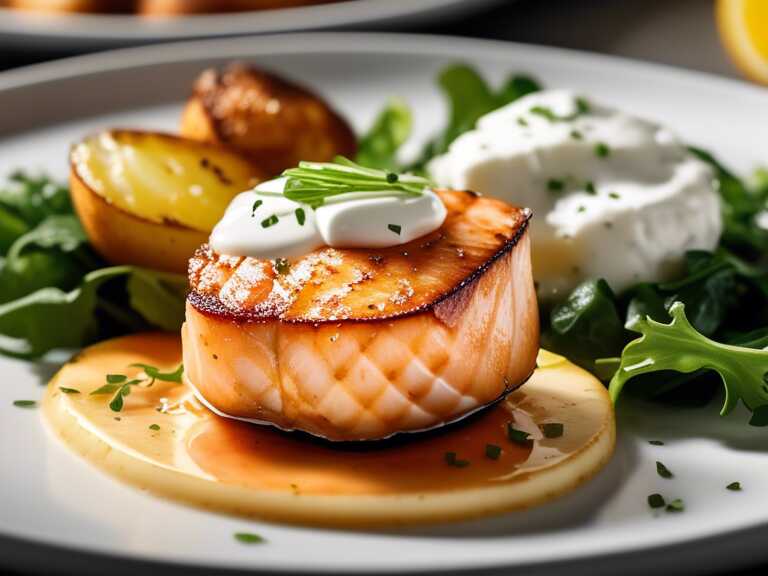
Eat to Beat: A Surgical Oncologist's Guide to Cancer-Preventing Dinner and Diet Tips
Diet impacts heart health and cancer risk. An oncologist suggests a meal high in omega-3, fiber, and protein to prevent cancer.

Reducing Cancer Risk Through Diet: Expert Tips
Are you aware that your dietary choices can have a significant impact on lowering your risk of developing cancer? While genetics and other factors play a role, over 40% of cancer cases are influenced by modifiable risk factors, including diet. Seeking guidance from Dr. Lori A. Alfonse, DO, a surgical oncologist and Deputy Physician in Chief of Lehigh Valley Topper Cancer Institute, we have gathered valuable insights on how to eat with cancer prevention in mind.
A Surgical Oncologist’s Recommended Dinner
Dr. Alfonse shares that one of her go-to dinners consists of sautéed scallops or salmon, accompanied by salad greens with homemade dressing and a small baked potato with sour cream. She emphasizes the importance of following the “kill it or grow it rule,” encouraging the consumption of foods that can either be killed (such as beef, chicken, fish, or pork) or grown (like fruits and vegetables).
Scallops and salmon, rich in omega-3 fatty acids, have been linked to a reduced risk of cancer due to their anti-inflammatory properties. Additionally, these seafood options are excellent sources of magnesium, which is associated with cancer prevention. The inclusion of salad greens aligns with the correlation between a high-fiber diet and a decreased risk of certain cancer types. Moreover, a diet abundant in vegetables, fruits, and whole grains can help mitigate the risk of cancer by impeding the growth of cancer cells and preventing the replication of damaged cells. Despite the potato’s reputation, it is a nutrient-rich food, providing essential carbohydrates, fiber, potassium, and iron.
Eating with Cancer Prevention in Mind
The “kill it or grow it” rule permits a wide variety of foods, including whole grains, legumes, and meat, while discouraging the consumption of ultra-processed foods. Research indicates a direct association between a diet high in ultra-processed foods and an elevated risk of specific cancers, such as colorectal and breast cancer. Dr. Alfonse advocates for prioritizing protein consumption and avoiding standalone carbohydrate intake. She recommends incorporating healthier alternatives, such as chickpea or red lentil pasta, and pairing carbohydrate-based snacks with protein sources like cheese. This approach not only aids in reducing the risk of obesity but also diminishes the likelihood of developing numerous cancer types, as obesity is a known risk factor for various cancers.
Dinner serves as an opportune meal to initiate dietary changes for cancer prevention. Emulating Dr. Alfonse’s balanced approach of incorporating protein, fiber, and carbohydrates into dinner meals can significantly contribute to lowering the risk of cancer. By adopting such practices, individuals can take proactive steps in their daily lives to mitigate their cancer risk.
For further recommendations on cancer prevention and dietary strategies, consult Dr. Lori A. Alfonse, DO, a distinguished surgical oncologist and expert in cancer research, credited by the Lehigh Valley Topper Cancer Institute.
Share news















